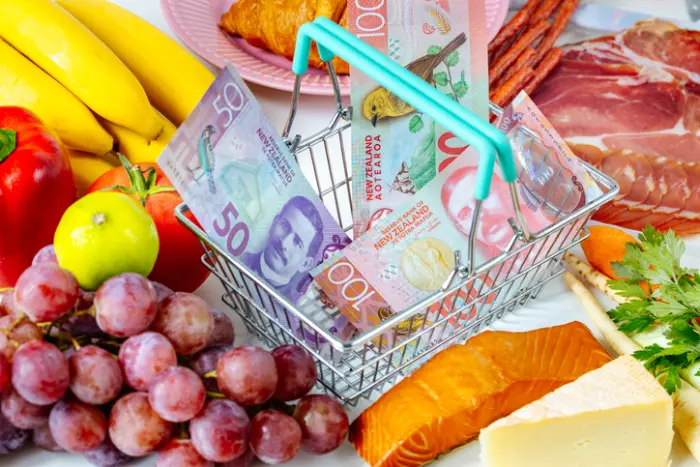BusinessDesk investments editor Frances Cook responds to emails from readers each week to answer questions about money. Below, you will find her expert advice. Send your own questions to [email protected].
Hi Frances,
I have, I guess, an economic question: why are so many NZ produced products so much cheaper overseas than they are here?
Hope it’s not a stupid question, it really grinds my gears.
Thanks,
P
Hi P,
No such thing as a stupid question around here!
It is slightly outside my area of expertise though, so here’s what I could dig up, followed by a couple of experts who were willing to give me their answers, too.
Firstly, I imagine this question was prompted by the insane food prices New Zealanders are facing, despite the fact that we produce so much food ourselves.
Yes, that is quite grating.
The Commerce Commission has pointed the finger at our supermarket system. Two companies run most of our supermarket outlets, and the lack of competition has resulted in what they diplomatically refer to as “excess profits” – $430 million a year in excess profits, to be precise.
We have the fifth most expensive food prices in the OECD. Lovely.
So, that’s one reason. It’s not that farmers are creaming it, it’s that the shops here in New Zealand can set whatever price they like and we, the consumers, pretty much have to lump it.
Also, the vast majority of the food we produce heads overseas.
NZ produces enough food in a year to feed 40 million people, which is not a bad effort.
Of course, that's far more than the population of NZ.
That means overseas companies can sometimes be buying NZ products in higher quantities than NZ companies are. They can therefore get a better price deal, or they might be able to sell for a lower mark-up because they're selling to more people, so it balances out for them.
But those two forces really are the tip of the iceberg. So, let’s bring in the experts to explain more on this frustrating situation.
First, let’s go straight to the source.
Here’s what a spokesperson from Export NZ told me.
There are several factors which could lead you to find a NZ-made product overseas for cheaper.
Depending on the seller, it could be to do with purchasing power and volume.
Buying in higher quantities could mean a reseller gets a better deal from the NZ exporter and is able to have a thinner margin and offer it to customers for less while still making a profit.
In larger markets overseas, there is more competition and increased price pressure. More competition keeps prices low.
Some larger stores will have products that are ‘loss leaders’, essentially sold for less than they cost, in order to get people in the door and spending on other items when in-store or online.
Depending on where in the world you go, NZ products can also be found for more than you would pay for them here. For example, high-end supermarkets which sell NZ imported produce as a premium product, such as mānuka honey, lobster, sauvignon blanc, out of season lamb, etc.
With produce, seasonality also comes into play with supply of produce having an impact on cost.
And now let’s turn to an economist to give us a broader overview.
Here’s Infometrics chief executive Brad Olsen.
Part of the answer will depend on exactly what product it is.
But we know that a large number of NZ exports are food and beverage products, and with the high cost of living, I’d expect that these sort of products are in the spotlight a lot more.
There’s no clear-cut economic answer as to why certain products would be cheaper than here in NZ – but there are a couple of ideas.
For some products (perhaps milk) the cheaper price might reflect that the product is being used as a loss leader – to get people into the store by selling the product for a below-retail price to then have the shopper wander the store and buy some higher-margin items, too.
Sometimes, there will be good specials on some products, meaning that the on-special price overseas might be cheaper than the non-special price in NZ, and some products (fresh and time-dated items) might need to be moved along, so there could be a cheaper price if the seller is overstocked and needs to shift that product.
Depending on the product, you might also have different taxes or charges applied at different places.
In Australia, they don’t pay GST on some food items, and in the US, who knows what the sticker prices omit (federal and state tax probably)?
So, the usual economic answer – it depends!
Send questions to [email protected] if you want to be featured in the column. Emails should be about 200 words, and we won't publish your name. Unfortunately, Frances is not able to respond to every email received or offer individual financial advice.
Information in this column is general in nature and should not be taken as individual financial advice. Frances Cook and BusinessDesk are not responsible for any loss a reader may suffer.










